
The politics of Italy are conducted through a parliamentary republic with a multi-party system. Italy has been a democratic republic since 2 June 1946, when the monarchy was abolished by popular referendum and a constituent assembly was elected to draft a constitution, which was promulgated on 1 January 1948.

The Transnational Radical Party (TRP), whose official name is Nonviolent Radical Party, Transnational and Transparty (NRPTT), is a political association of citizens, members of parliament and members of government of various national and political backgrounds who intend to adopt nonviolent means to create an effective body of international law with respect for individuals, human, civil and political rights, as well as the affirmation of democracy and political freedom in the world.
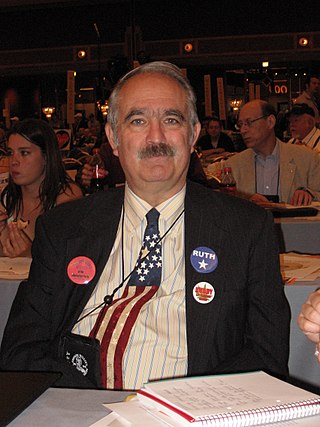
David Fraser Nolan was an American activist and politician. He was one of the founders of the Libertarian Party of the United States, having hosted the meeting in 1971 at which the Party was founded. Nolan subsequently served the party in a number of roles including National Committee Chair, editor of the party newsletter, Chair of the By-laws Committee, Chair of the Judicial Committee, and Chair of the Platform Committee.
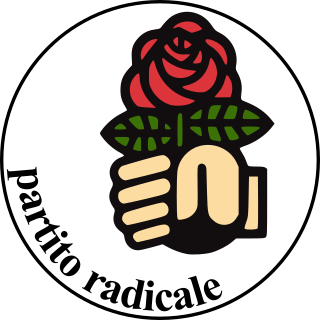
The Radical Party was a liberal and libertarian political party in Italy.

Daniele Capezzone is an Italian journalist and former politician.

Emma Bonino is an Italian politician. A senator for Rome, she served as Minister of Foreign Affairs from 2013 to 2014. Previously, she was a Member of the European Parliament and a member of the Chamber of Deputies. She served in the government of Italy as minister of international trade from 2006 to 2008.

Marco Pannella was an Italian politician, journalist and activist. He was well known in his country for his nonviolence and civil rights' campaigns, like the right to divorce, the right to abortion, the legalization of cannabis and the abolition of nuclear power. Internationally, he supported human rights and self-determination causes, like the Tibetan independence and persecution of Christians in Vietnam.
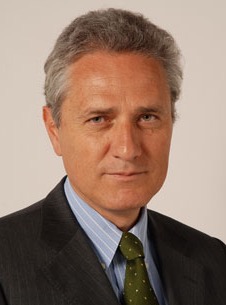
Francesco Rutelli is an Italian journalist and former politician, who is the president of Anica, National Association of Film and Audiovisual Industry, since October 2016. He also chairs the "Centro per un Futuro Sostenibile". He was during 15 years co-president of the European Democratic Party, a centrist European political party and he is now President of the Institute of European Democrats, EDP political foundation. He has been Mayor of Rome 1994–2001, and president of the centrist party Democracy is Freedom – The Daisy 2002–2007. He was the Deputy Prime Minister and Minister of Culture and Tourism in the second cabinet of Prime Minister Romano Prodi 2006–2008. Currently he also chairs Priorità Cultura ; Incontro di Civiltà ; Videocittà, Moving Images Festival.

The Years of Lead is a term used for a period of social turmoil and political violence and upheaval in Italy that lasted from the late 1960s until the late 1980s, marked by a wave of both far-left and far-right incidents of political terrorism and violent clashes.
Marino Busdachin is an Italian politician and human rights activist. Busdachin was born in Umag in 1956, and moved to Italy with his family in 1961. He studied law at the University of Trieste.
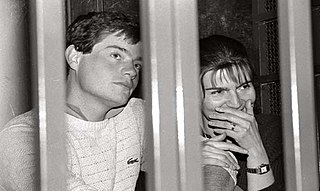
Giuseppe Valerio "Giusva" Fioravanti is an Italian former terrorist and actor, who with Francesca Mambro, was a leading figure in a far-right terrorist group Nuclei Armati Rivoluzionari. Fioravanti appeared in films and television from a young age, and in his early teens was the most famous child in Italy. He and Mambro were fugitives wanted for terrorist offences by their early twenties, they spent a further period on the run as suspects in the Bologna bombing. Both were captured after gunfights with police, and later found guilty of responsibility for the Bologna train bombing; they were sentenced to ten life terms, plus 250 years. Fioravanti was released from prison in 2009.

At Italy's instigation, a resolution for a moratorium on the death penalty was presented by the EU in partnership with eight co-author member States to the General Assembly of the United Nations, calling for general suspension of capital punishment throughout the world. It was twice affirmed: first, on 15 November 2007 by the Third Committee, and then subsequently reaffirmed on 18 December by the United Nations General Assembly resolution 62/149. New Zealand played a central role facilitating agreement between the co-author group and other supporters.
Capital punishment is legal in Tonga, but has not been imposed since 1982. The country's lack of executions puts it into the category of abolitionist in practice, where it retains the death penalty in law but has had a formal or informal moratorium for at least ten years. Tonga's low rate of murder convictions form part of the reason for the lack of executions, as well as its courts’ apparent unwillingness to impose the penalty unless it appears absolutely necessary to do so.
Prima Linea was an Italian communist terrorist group, active in the country from the late 1970s until the early 1980s.

The kidnapping and murder of Aldo Moro, also referred to in Italy as Moro Case, was a seminal event in Italian political history.
Capital punishment in Kazakhstan was abolished for all crimes in 2021.
Capital punishment in Nauru was used prior to its independence in 1968. Prior to the abolition of capital punishment on 12 May 2016, with the passage of the Crimes Act 2016, Amnesty International categorised Nauru as abolitionist in practice.
Antonio Stango is an Italian political scientist, an expert of human rights at international level, a writer and editor. After leading several non-governmental organizations, he is currently the President of the Italian Federation for Human Rights.
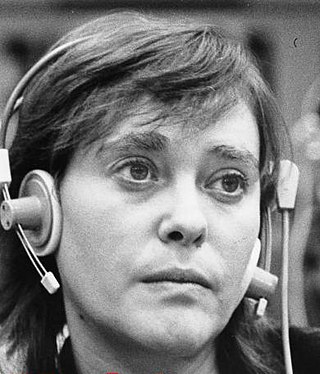
Mariateresa Di Lascia was an Italian politician and writer, activist, human rights' supporter and advocate of non-violence.

Matteo Mecacci is an Italian diplomat serving as director of the OSCE's Office for Democratic Institutions and Human Rights (ODHIR). In the past, he was a Radical Party Member of Parliament in Italy and elected in the lists of the Democratic Party, President of the International Campaign for Tibet and leading advocate for the International Criminal Court, the abolition of the death penalty, religious freedom and other prominent human rights campaigns.














